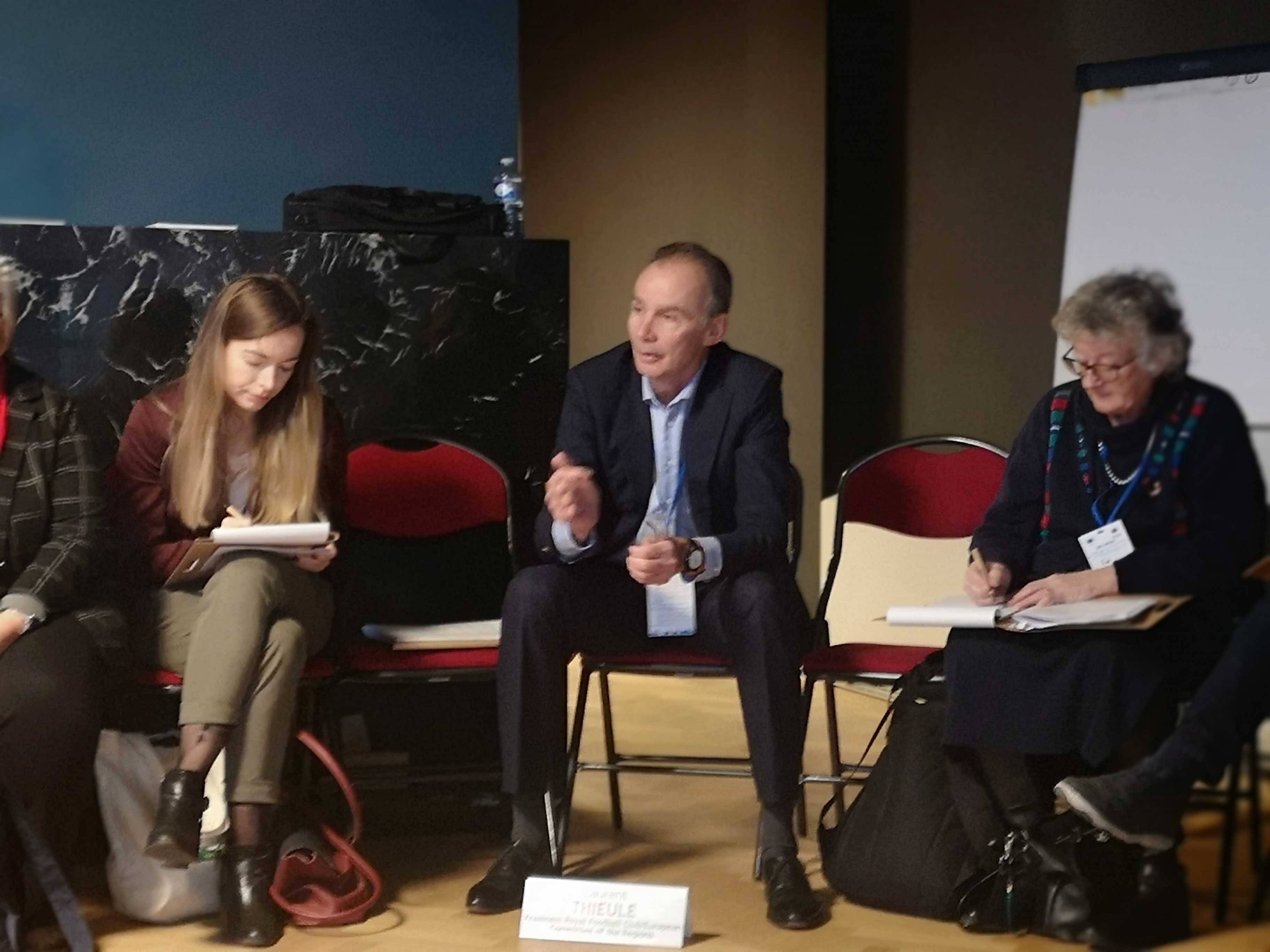
#EUGoLocal19: Building a more cohesive Europe through the local integration of refugees
#EUGoLocal19: Building a more cohesive Europe through the local integration of refugees
 Integration will always be local. This was key message delivered on December 3rd during the EU Go Local event held in Brussels, and co-organised by the European Commission and the European Committee of the Regions. On this day, stakeholders from various sectors gathered to discuss the integration of migrants and refugees in Europe at the local level. A plenary session initiated the event followed by a panel of local and global experts to discuss our topic of the day. Various workshops were then organised to tackle the subject from every perspective and bring solutions to the table for stakeholders from across Europe.
Integration will always be local. This was key message delivered on December 3rd during the EU Go Local event held in Brussels, and co-organised by the European Commission and the European Committee of the Regions. On this day, stakeholders from various sectors gathered to discuss the integration of migrants and refugees in Europe at the local level. A plenary session initiated the event followed by a panel of local and global experts to discuss our topic of the day. Various workshops were then organised to tackle the subject from every perspective and bring solutions to the table for stakeholders from across Europe.
The EU Commissioner for home affairs Ylva Johansson kicked off the day highlighting the need to foster integration at local stage in order to build a more cohesive and safer Europe. Between 2 and 2.5 million people legally arrive in Europe every year, but this is far from the end of their journey, as a new one begins towards integration into the local societies. Learning a new language, making it to the labour market and creating links with the new communities are all tremendous challenges that local communities should help the newcomers to achieve. To do so, the Commissioner asserted that the budget to foster such integration at local level and through small communities will triple.
A panel made of local stakeholders questioned and discussed the concrete reality of the stakes to overcome: how to promote migrant inclusion in their local communities, how locals and newcomers could live together and make this coexistence beneficial to everyone.
Dribbling past the hurdles of integration: how is sport facilitating the integration of refugees across Europe?
Integration has to be local, and we need to surpass the language barrier to interact and create links with migrants. Thus, as asserted by the Commissioner, sport is a universal language that has the capacity to build those links regardless of languages, origins or religions. Therefore, a workshop session was organised to exchange on the added value of sport regarding migrant integration at the local level.

A panel of experts composed of a representative from the UEFA foundation for children, Carine Nkoue, who has been involved in breaking stereotypes and helping new children arriving to integrate in a community thanks to football activities. Secondly, we had the opportunity to exchange with the coordinator of the 2018 #BeInclusive Award winner Sport & refugees from Germany, Volker Rehm. They have been developing a system of already 300 local coaches to build bridges and create connections between migrants looking for a contact person to guide them and the local community. Then, our partner on the FIRE project, Piara Powar from FARE network detailed how to use football as a tool to tackle discrimination with a special emphasis on women. To complete the panel of experts, Laurent Thieule president of Sport and Citizenship and president of Kraainem Royal Football Club had the opportunity to reveal the details around the programme that has welcomed 2000 refugees since its implementation.
To sum up the fruitful discussions that took place, local communities should grant access to sport activities to migrants as sport doesn’t require a common language to create links between individuals. Nonetheless, integration isn’t reached only through practice, and to achieve it local communities need to go further by helping the newcomers to learn the language and reach employability. Sport is needed to break the stereotypes, bring people together and even if every context is different, as reminded by Laurent Thieule, in each you will need support from the civil society and from the institution through public money.
As our president concluded, the focus must shift from migration to integration, which will only be reached through local actions. Sport brings individuals from all different backgrounds together, and invaluably contributes to building a more cohesive Europe.
